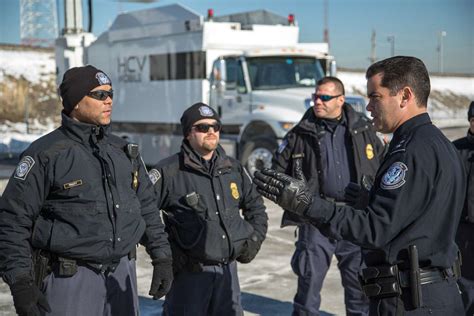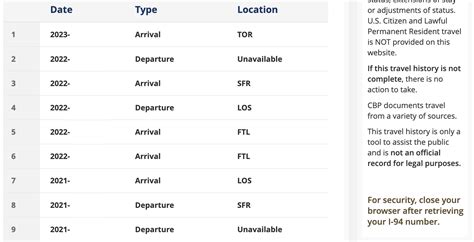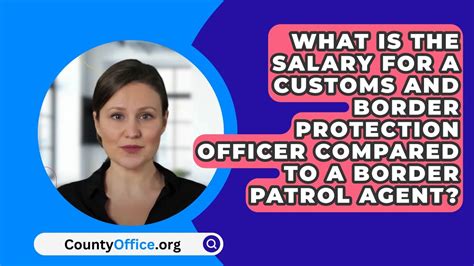A career with U.S. Customs and Border Protection (CBP) offers a unique blend of national service, law enforcement, and international affairs. It’s a demanding but highly rewarding path for individuals dedicated to protecting our nation's borders. But beyond the call of duty, a crucial question for any prospective candidate is: What is the salary potential?
A career as a CBP Officer not only provides stable federal employment and excellent benefits but also offers a competitive salary structure that can grow significantly with experience and location, often ranging from $50,000 to well over $115,000 per year. This article will provide a comprehensive breakdown of a CBP Officer's salary, the factors that shape it, and the long-term outlook for this vital profession.
What Does a U.S. Customs and Border Protection Officer Do?

U.S. Customs and Border Protection is the unified border agency of the Department of Homeland Security. CBP Officers are front-line federal law enforcement officers stationed at over 300 official ports of entry throughout the United States. Their primary mission is to protect the American public while facilitating lawful international trade and travel.
Key responsibilities include:
- Inspecting passengers, vehicles, and cargo arriving by land, air, and sea.
- Preventing the illegal entry of individuals and contraband, including narcotics, illegal weapons, and counterfeit goods.
- Enforcing hundreds of U.S. laws and regulations, from immigration and customs to agriculture.
- Detecting and apprehending individuals involved in terrorism, human trafficking, and other federal crimes.
- Providing clear and professional assistance to the traveling public.
It’s a role that requires vigilance, integrity, excellent judgment, and strong interpersonal skills.
Average U.S. Customs and Border Protection Salary

Unlike private sector jobs, CBP Officer salaries are determined by the federal government's General Schedule (GS) pay scale. More specifically, new officers are typically hired under the Law Enforcement Officer (LEO) special base rate tables, which start at a higher rate than the standard GS scale.
New CBP Officers are usually hired at the GL-5, GL-7, or GL-9 grade levels, depending on their qualifications. According to the U.S. Office of Personnel Management's (OPM) 2024 LEO pay scale, the base salary ranges are:
- GL-5: $42,656 to $53,732 per year
- GL-7: $47,612 to $60,947 per year
- GL-9: $52,942 to $68,073 per year
However, this is only the *base pay*. Nearly all officers receive Locality Pay, a significant adjustment that increases salary based on the cost of living in their duty station's region. Furthermore, due to the 24/7 nature of the job, overtime pay, night shift differentials, and holiday pay are common, substantially increasing total compensation.
Salary aggregator sites reflect this total compensation. For example, Glassdoor reports the average total pay for a CBP Officer is approximately $98,500 per year, with a likely range between $81,000 and $122,000, factoring in base pay, overtime, and other cash compensation.
Key Factors That Influence Salary

Your starting salary and career earnings as a CBP Officer are not static. They are influenced by a clear set of defined factors.
### Level of Education
Education is a primary factor in determining your starting grade level. To qualify for a higher entry-level grade—and thus a higher starting salary—you can leverage your academic achievements.
- GL-5: Requires a bachelor's degree OR three years of general experience.
- GL-7: Requires one full academic year of graduate-level education OR meeting a "Superior Academic Achievement" standard as an undergraduate (e.g., high GPA, class rank).
- GL-9: Requires a master's degree or equivalent graduate degree (like an LL.B. or J.D.).
Starting at a GL-7 or GL-9 level instead of a GL-5 because of your education can translate to a starting salary that is thousands of dollars higher.
### Years of Experience
Experience is the other major qualifier for your entry-level grade and is the primary driver of salary growth throughout your career.
- Qualifying Experience: Relevant work experience, especially in law enforcement, military service, or security, can qualify you for a higher starting grade. For example, one year of specialized law enforcement experience may qualify you for a GL-7 position.
- Career Progression: Once hired, officers progress up the ladder. A CBP Officer can expect to be promoted from GL-5/7/9 to a journeyman level of GS-12 non-competitively. According to the OPM's 2024 LEO pay scale, a GS-12's base salary ranges from $74,258 to $96,539, before locality pay and overtime.
- Supervisory Roles: Advancing to supervisory or managerial positions (GS-13 and above) offers further significant salary increases, with base pay easily exceeding $100,000 per year.
### Geographic Location
Where you are stationed has one of the most significant impacts on your paycheck due to Locality Pay. This system is designed to make federal salaries competitive in different parts of the country.
Here’s how a GS-12, Step 1 base salary of $74,258 changes based on location, using 2024 OPM data:
- Laredo, TX (20.32% Locality Pay): $89,343 per year
- Miami-Fort Lauderdale, FL (27.50% Locality Pay): $94,679 per year
- New York, NY (37.58% Locality Pay): $102,176 per year
- San Francisco-Oakland-San Jose, CA (45.41% Locality Pay): $107,978 per year
This demonstrates that your duty station can alter your annual salary by tens of thousands of dollars.
### Company Type
As a federal position, the "company type" is consistent: the U.S. Federal Government. However, your specific assignment and role within the larger CBP agency can influence earning potential. While a CBP Officer works at ports of entry, other roles within the agency include:
- Border Patrol Agents: Work between ports of entry and have a similar pay structure and progression to GS-12.
- Air and Marine Operations (AMO) Agents: Highly specialized roles (pilots, marine interdiction agents) that often have a higher earning potential due to their technical skills and mission-critical nature.
The fundamental employer remains the same, but the role dictates the specific responsibilities and long-term career tracks available.
### Area of Specialization
Within the CBP Officer career path, pursuing a specialization can lead to more opportunities and potentially higher pay through promotions or special pay rates. Specialized teams and units include:
- K-9 Unit: Handlers work with highly trained dogs to detect narcotics, currency, or concealed people.
- Special Response Team (SRT): A dedicated tactical unit that responds to high-risk incidents.
- Anti-Terrorism Contraband Enforcement Team (A-TCET): Focuses specifically on identifying and stopping terrorist threats and weapons.
While these roles may not always come with a direct pay raise, they often provide advanced training and a faster track to leadership and higher-grade positions.
Job Outlook

The need to secure the nation's borders and facilitate legal trade is a constant government priority, making careers with CBP exceptionally stable.
According to the U.S. Bureau of Labor Statistics (BLS), employment for Police and Detectives, the category that includes federal law enforcement officers, is projected to grow 3 percent from 2022 to 2032. While this is about as fast as the average for all occupations, the continuous need for border security, combined with retirements from the current workforce, will ensure a steady demand for new CBP officers in the years to come.
Conclusion

A career as a U.S. Customs and Border Protection Officer is a path defined by purpose, service, and stability. From a financial perspective, it offers a competitive and transparent salary structure with clear, achievable pathways for significant growth.
Here are the key takeaways for anyone considering this profession:
- Strong Starting Salary: Entry-level pay is competitive, with a direct path to increase it through education and experience.
- Significant Growth Potential: A non-competitive promotion track to the GS-12 level means your salary will grow substantially in your first few years.
- Location Matters: Locality pay can add over 40% to your base salary depending on your duty station.
- Total Compensation is Key: Your final take-home pay is greatly enhanced by locality adjustments, overtime opportunities, and excellent federal benefits, including a pension plan and comprehensive health insurance.
If you are seeking a challenging career with a clear mission and a salary that rewards your dedication and skill, becoming a CBP Officer is an opportunity well worth exploring.
